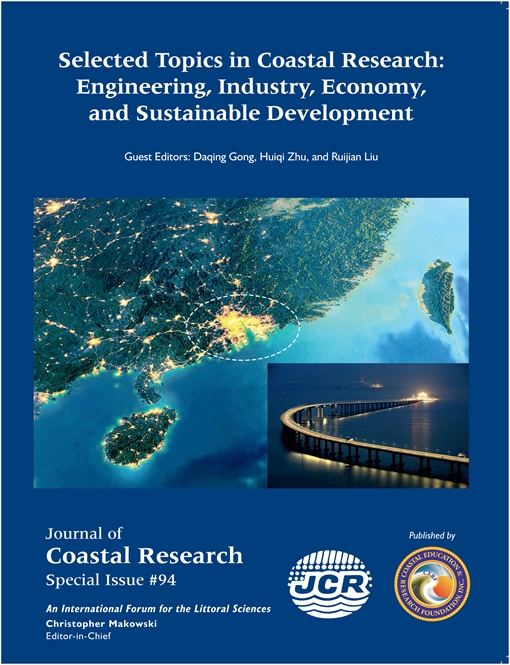Zhang, X.-L.; Li, Z.; Li, D., and He, Y.-K., 2019. Marine environment distinctions and change law based on eCongnition remote sensing technology. In: Gong, D.; Zhu, H., and Liu, R. (eds.), Selected Topics in Coastal Research: Engineering, Industry, Economy, and Sustainable Development. Journal of Coastal Research, Special Issue No. 94, pp. 107–111. Coconut Creek (Florida), ISSN 0749-0208.
The extraction of marine environment distinctions is of utmost importance to the development of marine economy and environmental conservation. Traditional extraction method has some defects such as less observation data, large time span and vulnerability to vile weather on the ocean. The eCongnition remote sensing technology features fast classification, high precision and rises superior to the bad weather of the ocean. This paper attempts to apply the eCongnition remote sensing technology to the extraction of marine environment features in order to seek out its changing laws. The findings show that the eCongnition remote sensing technology can analyze the spectral, spatial and textural identities of the ocean. By extracting the characteristics of offshore fishery resources and ocean surface wind speed information, it is found that the marine fishery has a direct bearing on the marine environment factors, i.e. the surface temperature and chlorophyll-a concentration. The optimal ocean surface temperature is 29.5°C, and the optimal chlorophyll-a concentration is 0.4 mg/m3; the greater the distance from the sea level, the higher the wind speed on the ocean surface. Experimentally, this study provides the clues to the application of eCongnition remote sensing technology in marine feature extraction.





